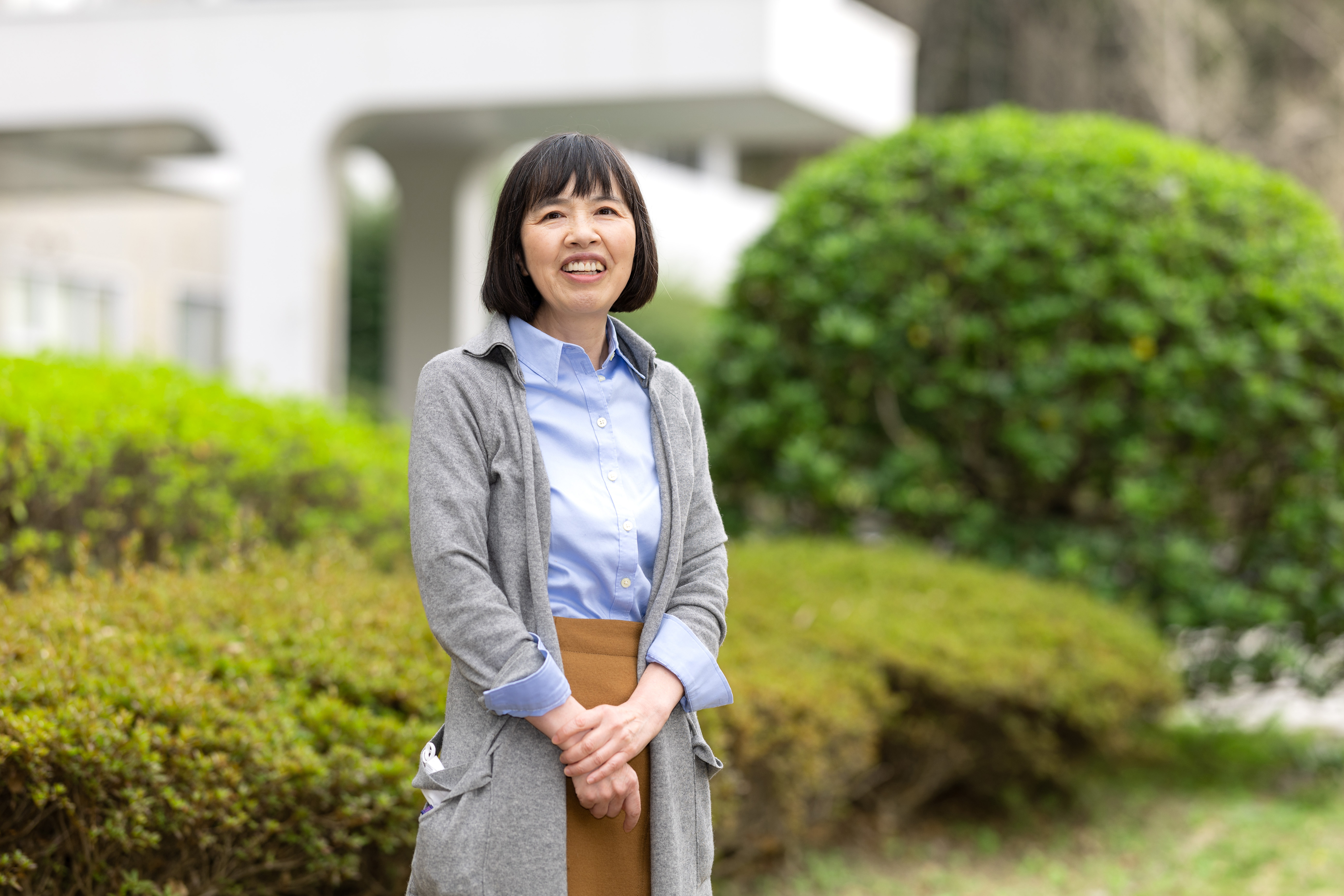
Professor Mariko Okada, Laboratory for Cell System, Institute for Protein Research
"Originality – The need for novelty determines scientists’ success"
Dr. Mariko Okada’s laboratory focuses on dynamics of molecules and genes in cells and analyzes them by combining wet lab experiments and mathematical models, thereby clarifying the quantitative relationship between signalling dynamics, transcriptional regulation, and cell fate.
Developing patient-specific models with genetic information
In recent years, Dr. Okada’s laboratory has been identifying the molecules and quantities required for a threshold response in immune and cancer systems to environmental changes from among thousands of pieces of genetic information, formulating them in mathematical models and elucidating their mechanisms. It is expected that this research method, which combines data analysis and mathematical models, can be universally used to understand the origins of various types of life-course incidents and diseases.

Her research group recently succeeded in developing and presenting a method for establishing patient-specific models [1], a computational framework for stratification of patients using in silico signal dynamics that can predict individual patient prognosis and drug response in triple-negative breast cancer based on clinical gene expression profiles. In cancer treatment, indicators such as the size of the cancer, the degree of invasion, and the presence or absence of certain disease gene markers have influenced treatment selection. However, conventional classification methods can lead to significant differences in patient prognosis, creating an urgent need to develop a new classification method based on the diverse genetic information of individual patients. The developed mathematical models can be used in cell simulation and help digitalize drug discovery research by reducing experimental studies, since the prognosis of each patient and the search for the right drug for each patient can only be predicted from patient-specific simulations.
“The goal of this research, which uses a mathematical modeling approach, is to better understand molecular mechanisms in cancer cells and ultimately to eliminate cancers,” says Mr. Hiroaki Imoto, the first author of the above-mentioned article. “What is the mechanism that drives cellular function and dysfunction? By deepening our understanding of the cells and applying knowledge of mathematics and physics, I wish to achieve my goal and become a scientist who has knowledge of both life science and data sciences.”
Working and mingling with international researchers sparks new ideas
Dr. Okada works with a number of collaborators at overseas institutions for systems biology research. She encourages her students to work in such collaborators’ labs. Mr. Imoto was one of those students, working in a lab at University College Dublin for six months under a leading researcher in the field. Mr. Imoto admires him not only for being a top researcher but also for being an amazing educator. The lab attracted researchers from around the world and the discussions Mr. Imoto had with them were very stimulating and rewarding. By working outside of Japan, he found that that there was not much difference in research ability of individuals, but Europeans had powerful synergy when working in a group.
Dr. Okada appreciates discussions and mingling with people from different research backgrounds. Through participating in such discussions or placing oneself in a different environment, researchers can gain new ideas. Having worked at a research institute, Dr. Okada says, “The university is a place of diversity in both people and knowledge, which makes it different from other research-oriented institutes. Making the most of this key difference will allow us to be creative and free to generate a variety of ideas.” She values original ideas from students and employs theirs in the integration of mathematical modeling and biological studies.
From the virtual to the real world: contributing to drug development
According to Dr. Okada, applying mathematical modeling to the analysis of biological networks is an approach that has emerged in the past 20 years and is still being developing, though it shows much promise. She continues to pursue originality in her research with this approach in which she uses big data to explore drug development, an area of scientific interest which began with the question of “How do cells choose and process the information they need from a pool of thousands of genes?”

The Okada lab members at the Institute for Protein Research, April 2022 (Hiroaki Imoto, the third from the left).
[1] Hiroaki Imoto, Sawa Yamashiro, Mariko Okada (2022). A text-based computational framework for patient-specific modeling for classification of cancers. iScience. DOI: 10.1016/j.isci.2022.103944
Text: Saori Obayashi/Edit: Christopher Bubb